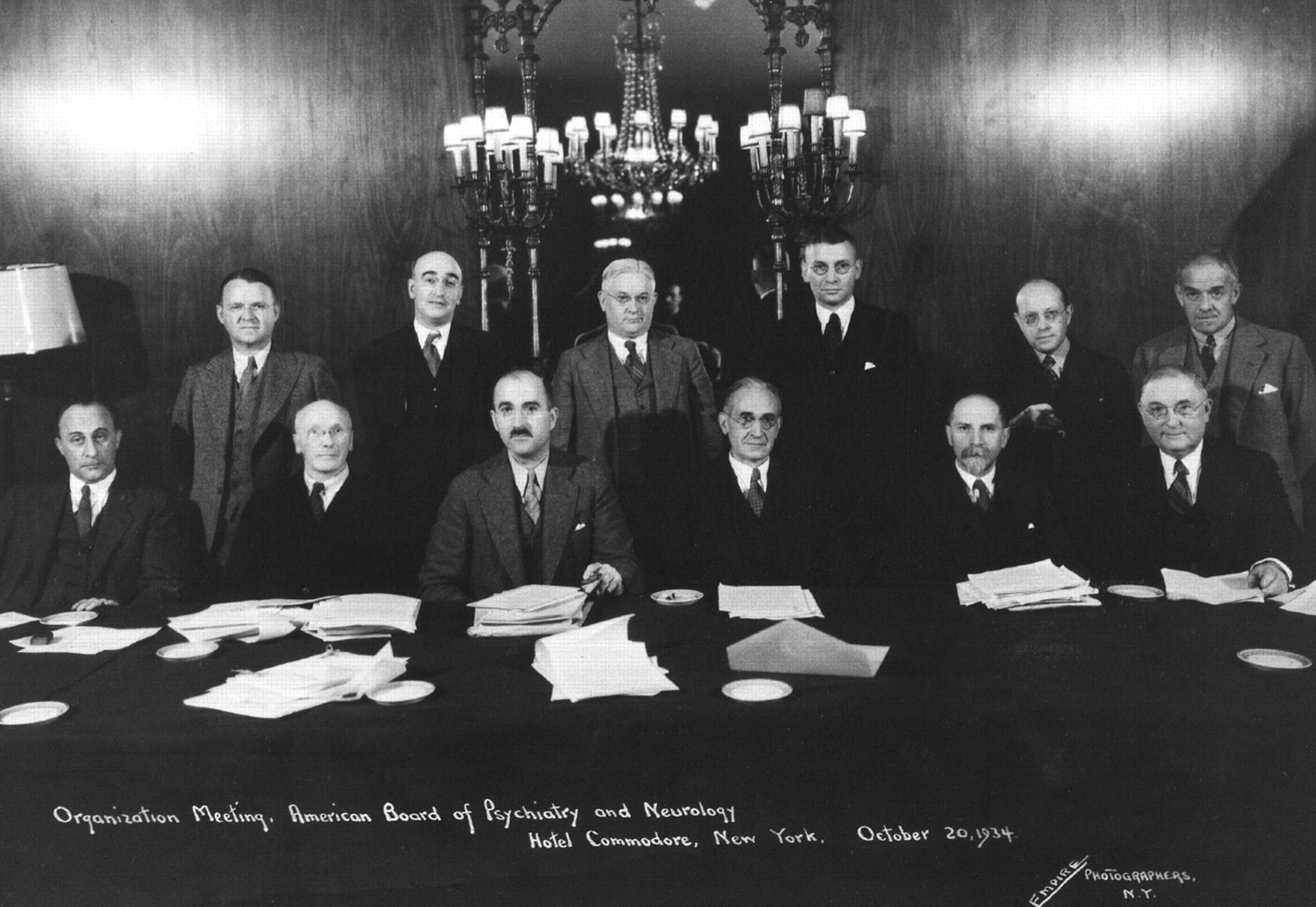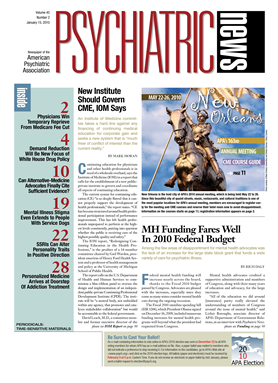The American Board of Psychiatry and Neurology (ABPN)—the independent, nonprofit organization that certifies physicians practicing psychiatry, neurology, and their subspecialties—has turned 75 years old. It celebrated its anniversary on September 26, 2009, in Chicago.
Current and emeritus ABPN directors and ABPN staff, as well as physicians from various organizations, attended the celebration. Psychiatrist Larry Faulkner, M.D., ABPN president and CEO, reviewed strategic themes that it has dealt with since its 1934 founding. Robert Michels, M.D., a professor of psychiatry at Cornell University and emeritus ABPN director, reviewed the careers of some of the deceased preeminent figures in psychiatry, while neurologist Mark Dyken, M.D., did so for preeminent figures in neurology. Darrell Kirch, M.D., president of the Association of American Medical Colleges, chaired a panel on the future of medical education. Accreditation was addressed by Thomas Nasca, M.D., of the Accreditation Council for Graduate Medical Education, and Kevin Weiss, M.D., of the American Board of Medical Specialties, addressed certification.
“The highlight of the celebration for me,” said Kirch, “was to see so many of the people who helped create modern American psychiatry come together in one room. Giants of our field mixed with rising stars they are mentoring; it made for a wonderful combination.”
In 1935, the first year after the ABPN was established, 19 psychiatrists were certified. Since then, some 48,000 have been. And just as ABPN has evolved over the years, it will continue to do so over the next decade, Faulkner told Psychiatric News.
Major changes in the ABPN certification process over the next decade will include the development of new computerized certification exams for general psychiatry and child and adolescent psychiatry that will replace the current Part I and Part II (oral) exams, as well as implementation of new credentialing requirements that must be completed before candidates are eligible to take the exams.
The new computerized exams will focus on clinical vignettes that might be presented through written, video, or audio formats. The new credentialing requirements will focus on demonstrating key competencies that cannot now be tested in the computer exams, such as the abilities to establish an effective physician-patient relationship, conduct an age-appropriate psychiatric interview that includes a mental-status exam, and make an organized case presentation.
What will ABPN be like in 2034, when it turns 100 years old? “I suspect that it will be conducting certification exams using technological advances that we might not even be able to fathom today and that will make the current state-of-the-art techniques appear primitive by comparison,” Faulkner predicted. “In any event, the major focus of these exams will still be on the demonstration by candidates of competencies required to provide effective and efficient medical care. I also suspect that ABPN will be employing a wide range of clinically relevant techniques for certified psychiatrists and neurologists to demonstrate that their base of knowledge is current, and that their patient care is consistent with the best practices of their colleagues.”



